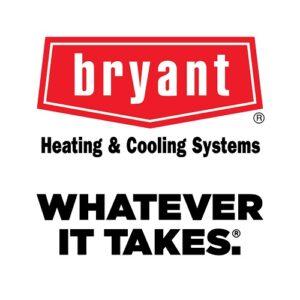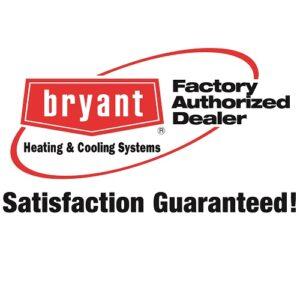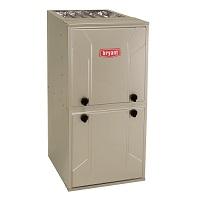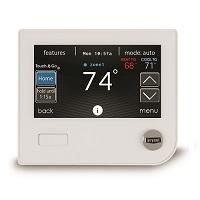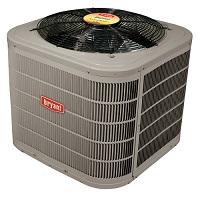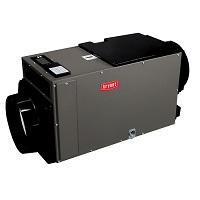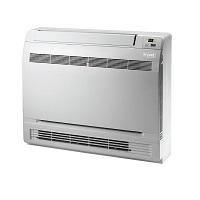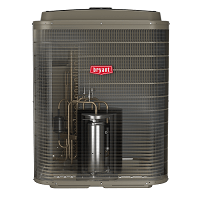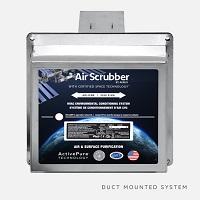10 Things To Consider When Buying a Furnace
The quality of your furnace installation is key to the performance and energy efficiency of your system. Be sure to choose a well-trained contractor, and ask about their installer training program. This can be a big differentiator.
Make sure the contractor you choose is licensed by the State in which you live for heating, cooling and refrigeration handling. They should also be bonded, and carry General Liability and Workers' Compensation insurance. Have comfort in knowing you're covered.
The top complaint with high efficiency furnaces is noise. Multi-stage furnaces operate at their lowest sound level for the majority of the heating season while also addressing fluctuating temperatures inside your home.
An improperly sized furnace can cost you in several ways. If your furnace is too small, your home will be too cold on the coldest nights of the year. If the furnace is too large, you will likely experience hot and cold spots throughout your home. Oversized equipment adds to the wear and tear on your furnace. Ask your contractor to run a load calculation to determine the proper size for your furnace.
Furnace efficiency is a measurement of how much of the energy put into a furnace is converted into heating power for your home. It is measured in AFUE (the Annual Fuel Utilization Efficiency). Investing in the most efficient furnace you can afford, will save you more on monthly utility bills in the long run.
Often when people talk about furnace efficiency they talk about AFUE (see above), but another important factor of furnace efficiency is the blower motor. The furnace blower's main function is to draw heat from the furnace and distribute it throughout the house. An experienced heating contractor will explain the blower motor options available to you.
The air inside our homes can be two to five times more polluted than outdoor air, according to the EPA (Environmental Protection Agency). The best time to tackle the quality of the air inside your home is when you are replacing your furnace. Vocalize any concerns about allergies, mold, cracking floors, lingering odors, dust or viruses with your contractor.
Today's thermostats and controls can do a lot more than just run a heating and cooling schedule. You can get energy reports, turn your heat up or down remotely, and even tie into the Apple HomeKit.
Most furnaces on the market today come with a 10-Year Limited Parts Warranty when the unit is registered. This warranty covers the costs of parts if the unit were to require a repair within that 10-year period. However, the costs of labor are not included. Ask your contractor if they offer a labor warranty to round out your system's warranty coverage.
Some manufacturers offer cash back rebate offers and flexible financing plans at various times of the year, allowing you to invest in your home's comfort or respond to an unexpected need without breaking your budget. In addition, some furnaces will also qualify for utility rebates and federal tax credits. Make sure to ask if your furnace qualifies.
Frequently Asked Questions
To help avoid costly repairs and maximize performance, you should replace your furnace filter at recommended intervals. If you have a one inch disposable filter, replace it monthly. If you have a two inch filter, it should be changed every two to three months. For five inch MERV 8 filters, they should be changed every six months. If you have allergies, smoke indoors, burn candles, have pets, or have construction in your neighborhood, it’s likely you’ll need to replace your furnace filters more often. Many thermostats will now automatically tell you when to change your filter.
Every house is different, but an ideal humidity level for winter is 30-40%. Higher humidity in the winter makes your home feel warmer while your thermostat setting is lower. Optimal indoor humidity in the summer is 45-50%. Reducing your humidity during the summer provides adds comfort without adjusting your thermostat to a lower temperature. Have a whole-home humidifier and dehumidifier are the best options for staying economically comfortable all year long.
Annual maintenance by a qualified company is recommended to promote energy efficiency, help prevent breakdowns, and extend equipment life. It is always a good idea to test your system before you really need it to avoid emergencies. Call us for service before extreme weather hits.
Not for your furnace. We can perform service at any time of the year. However, for your air conditioner, since it has an outside component, the air temperature outside needs to be at least 55 degrees.
With proper maintenance, most furnaces last 16 to 18 years. Older systems are less energy-efficient and more costly in terms of repairs, replacement parts, and utility bills. If your heating system is over 10 years old, it may last another 10 years if you do regular maintenance and minor repairs, but watch for slower warming, reduced airflow, higher energy bills, strange odors, and loud noises. These may be signs that it's time to consider a new furnace.
To fix or replace? As a general guideline, consider a replacement if the equipment is beyond three-quarters of its life expectancy and repairs will cost more than a third of the replacement cost. Also consider the cost to operate it each month because a newer, more efficient unit could save you money over time.
If you wait until your furnace dies to consider replacing it, it's now an emergency, which typically happen at the least opportune time. If you are in a rush to restore heat, you may not carefully weigh all of your options for service and savings. Plus, it will be more difficult to schedule an install in a timely manner. If you have annual maintenance performed, we’ll be able to catch early warning signs and give you recommendations on a new installation before you have an emergency.
Heating or Cooling Emergency?
What to do while waiting for emergency services to arrive:
- Access the situation -- The more your can describe what's going on, the better equipped the technician will be with the supplies before heading to help you.
- Turn off AC unit -- If your air conditioner's line going into your home is frozen. Turn the unit off 2-3 hours before we arrive for your repair.
- Be proactive -- Eliminate the need for many emergency calls by scheduling regular maintenance of unit cleaning by a professional and regular filter changes.

